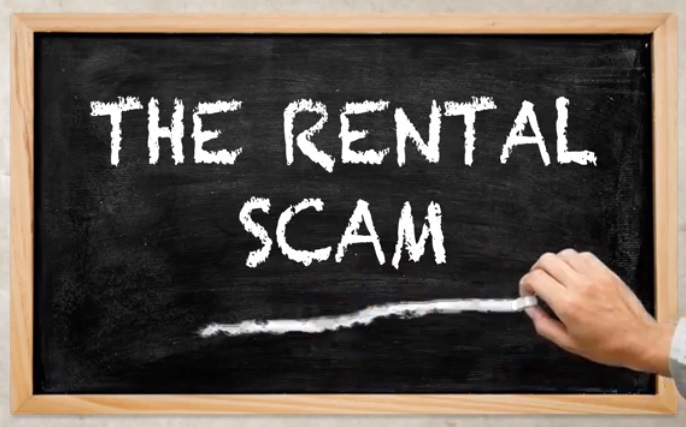So you’re renting for the first time and want to make a good impression on your potential landlord. You want them to approve your application, so you willingly provide any information requested such as a copy of your identity card, employment letter, payslips and the like.
But if you were to reverse the tables and ask yourself what you really know about the potential landlord or even the agent? The answer most likely is that you know next to nothing about them!
5 Tips For Tenants To Avoid Rental Scams Share on XIn addition, the situation might be rather sensitive because appearing overly suspicious of the landlord could be a real turn off. Still, you shouldn’t part with your deposit money until you are satisfied that your landlord, agent and the advertised property is indeed the real deal.
What kind of scams might you encounter?
You don’t want to pay your deposit only to find that the landlord or agent was a fraud or that the property is about to be foreclosed. Thus, the questions you need to ask are if the landlord really is the owner of the property and if not, is he or she authorised to rent it out?
Unfortunately, tenants who have had the displeasure of enduring rental scams have lost their deposits which are rather difficult to recover.
Furthermore, personal safety should also be of concern when meeting with a landlord for a viewing, especially if they choose to manage the tenancy without a registered agent.
So just what can you do to protect yourself and your money? Check out this list of five clever tips to help you minimize the possibility of losing your money to property rental scams:

1) Find out with whom you are dealing
Fraudsters can pose as the owner or the real estate agent, sometimes even coming up with elaborate schemes to deceive prospective tenants. A rental fraud case in America involved a former agent who attempted to rent out several vacant properties and collect deposits without having any authority to do so.
Malaysia too has had its fair share of property frauds, most recently with scam artists pretending to be agents. The good news is that you can easily find out if the agent with whom you are dealing really is registered. Just run the agent’s Real Estate Negotiator (REN) number (for free!) on the Negotiator Search page of the Board of Valuers, Appraisers, and Estate Agents of Malaysia’s official website.
To find out about the owner, simply conduct a quick internet search to look for potential red flags. You could also perform a bankruptcy search that will further confirm if the property for rent under his or her name is in foreclosure. The process is a rather simple one which can be completed online through the Malaysian Department of Insolvency’s official website for a small fee. Another method is via over-the-counter transaction in Headquarters Putrajaya, where a small fee of RM10.00 is payable via cash. Done this way, the bankruptcy search results can generally be received within 15 minutes.

2) Ask if a land title search has been done
A land title is a document that holds ownership information for land or any building constructed upon it, not to be mistaken with what some sites use the term ‘Land Title’ for when referring to the property’s residential or commercial title.
Thus, running a title search on your selected property is an important part of confirming ownership and title status as well as procuring more accurate details on the property.
Even though it is common practice to perform this search when owners mean to sell, not all agencies will conduct one for rental properties. It’s alright to ask for specifics and even proof of documentation, especially if the tenancy deal appears too good to be true.
If you are liaising directly with the owner, do run a title search yourself at the corresponding Land Office but do not be alarmed if the registry does not have one on record. Properties without individual titles (still under the master title) may not appear on the Land Office registry for the same reason or could be in the process of registration. The next step here would be to request other proofs of ownership such as a deed or Sale and Purchase Agreement.

Note that sometimes, owners prefer potential tenants to work directly with an appointed agent – this is still acceptable provided that the agent is registered or works as a negotiator within a trusted agency.
However, if you have never met the owner or agent in person, do not attempt to send money unless you are able to verify the identity of the owner and the authenticity of the rental agreement. Landlords that you have never met, rarely request for money to be sent online without having a reputable agent to validate the deal and act as a physical go-between.
If in the case of overseas-based landlords, genuine ones often engage a property management agency or real estate agent to manage tenancies. Dealing directly with an overseas-based landlord is rather risky, especially when everything is done online.
In a recent KL rental scam, a fraudulent owner, supposedly a British expat deceitfully requested potential tenants to transfer deposits to a notable property website in Malaysia. However, the banking details appeared to send the money directly into the account of an unknown individual instead of the property website listed.
Thus, if there is you are unable to validate the identity of the owner or tenancy promised, carefully consider before transferring any funds.

4) Cross-reference contract information
Carefully read the Tenancy Agreement and get assistance if you aren’t fluent in legalese to ensure that the contract is on the up and up. Check that names, identity card numbers and addresses match exactly on the contract especially on the ‘First Schedule’ or ‘Schedule 1’ as it is commonly referred and where summarize details are to be found. To do this, you’ll need to request a copy of the owner’s identity card.
In addition, do confirm that the bank account details provided correspond to that of the landlord. If they do not match however, do seek clarification if the property has more than one owner, otherwise, this could be a cause for concern.

5) Avoid making cash payments or instant transfers
Be sure to issue cheques for deposits or if that option is not available to you, do buy a bank draft, make a copy and hold on to the receipt. Cash payments are difficult to verify or stop if need be, whereas instant bank transfers, while traceable, may not be retractable depending on your mode of transfer.
If a registered real estate agent is involved, insist that any monetary handover be done in the agency office. This would include paying the deposit as well as when signing the Tenancy Agreement.
Whether it’s your first time renting or even if you’ve done it before, it’s completely understandable to feel overwhelmed when it comes to parting with hard-earned money. So instead of enduring unnecessary stress and worry, just get in front of your fears and perform these essential checks.
It may seem like a lot of work and therefore you might just choose to bite your tongue and trust that all will be alright, but it is in your best interest to be diligent not just for the sake of the money but to avoid unnecessary hassle in the future.
–PROPSOCIAL
Like this article or found it helpful? Share it!
Follow us on Twitter for more news, tips and inspiration. Become our mate on Facebook and explore our Pinterest boards.


